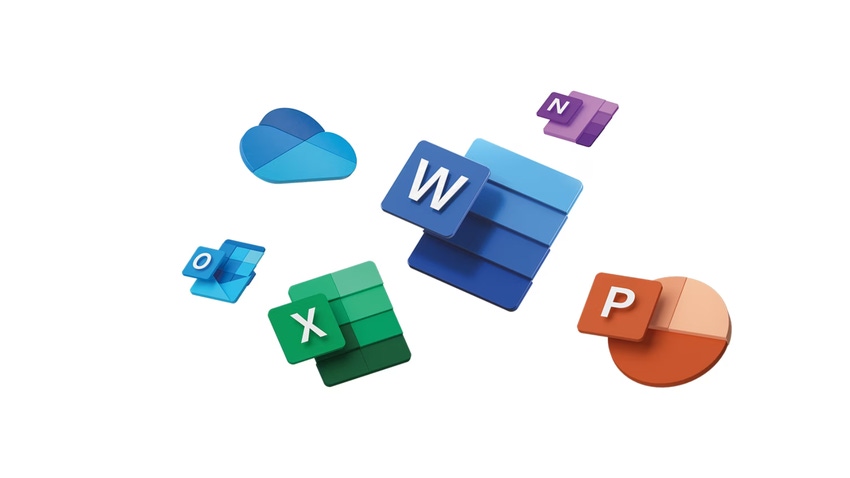Microsoft Rolls Out Bing Chat, Copilot for Enterprises − At a Cost
Copilot will raise Microsoft 365 costs by 53% to 240% for businesses

At a Glance
- Microsoft launches enterprise-grade AI-powered Bing Chat and Copilot, its AI assistant, for business.
- Copilot will raise a company's Microsoft 365 subscription costs by 53% to 240%.
Microsoft has launched enterprise-grade versions of its AI-powered Bing Chat and AI assistant Copilot for its 365 suite of applications including Word, Excel, PowerPoint and Outlook.
But Copilot also will raise a company’s Microsoft 365 costs by up to 240%. The tool costs an extra $30 per user per month. Currently, Microsoft 365 business accounts start at $12.50 and go up to $57 per user per month.
Copilot's pricing "seems high" compared to the Teams Premium offering of $10 per user per month, according to a research note from BofA Securities analysts provided to AI Business. Teams Premium offers intelligent recap of meetings, live translations for captions, personalized call timeline markers, meeting templates and other uses.
However, Copliot's ability to parse through and analyze relevant business data in a user's documents, emails, calendar, chats, meetings and contacts is a "critical differentiator" to existing AI products, the analysts said.
Bing Chat is free to current Microsoft 365 E3, E5, Business Standard and Business Premium subscribers, but a stand-alone offering is coming for $5 per user per month.
Here’s what you get.
Bing Chat Enterprise
Users can access Bing Chat Enterprise by logging into the new AI-powered Bing with their company email. Microsoft said employees can “safely” enter sensitive information into the search bar to do such things as
create marketing content for a new product that includes specifications and pricing, and
compare the product with those of rivals in a table format, among other uses.
Microsoft said the data will not leak outside the organization. The enterprise version of chat does not have a save feature, and Microsoft also said it has “no eyes-on access” so it cannot view the information or use the data to train its AI models.
Microsoft has grounded Bing Chat Enterprise in web data and provides verifiable answers with citations, along with visual answers including graphs, charts and images.

Copilot for enterprise
The tech giant said Microsoft 365 Copilot, first introduced in March, has already been added to Word, Excel, PowerPoint and Outlook.
Copilot harnesses the capabilities of large language models to learn from a user’s content, such as text in Word docs, Excel files and the like. Thus, users do not have to paste an entire document into the Copilot prompt. Instead, they just have to pick a file for Copilot to read and analyze.

Users can ask Copilot about a specific sales report, and the system then looks for relevant reports based on a conceptual understanding to determine user intent. Copilot can generate updates on meetings or create a SWOT analysis from internal files and data from the web.
The $30 monthly per user cost for Copilot will be in addition to Microsoft 365 subscriptions, which raises the total cost for enterprise by 53% to 240%.
With the addition of Copilot, Microsoft 365 E3 will increase from $36 to $66 per user per month, E5 from $57 to $87, Business Standard from $12.50 to $42.50 and Business Premium from $22 to $52. AI Business has reached out to Microsoft for comment on the cost increases.
Generative AI applications for enterprise emerging
Generative AI tools began as consumer applications, which tested the public’s appetite for them. In a sign that this technology has legs, more products and services for enterprises are emerging.
Microsoft's partnership with ChatGPT-maker OpenAI is paying off. According BofA analysts, Microsoft Azure is gaining share in the public cloud market "as CIOs view the platform as the leading AI offering."
One global system integrator (GSI) told BofA that demand for Microsoft products "remains unparalleled across the ecosystem" and "OpenAI is drumming up excitement within the customer base." However, the largest corporate customers "do not have their product roadmaps mapped out just yet to leverage it," the GSI said.
Another GSI said that Microsoft "has an edge" in AI compared to its rivals and "hitting on all cylinders." Meanwhile, "Google appears a little confused at the moment and AWS is in a steady state - nothing new."
Stay updated. Subscribe to the AI Business newsletter.
Yesterday, Meta released a new language model, Llama 2, which is free to use for businesses and researchers. The model, in three sizes of seven billion, 13 billion and 70 billion parameters, is available on Microsoft Azure as its preferred partner. Llama 2 is also available on AWS, with other platforms coming.
Besides Meta, Microsoft, Google and OpenAI, other companies with enterprise-grade generative AI services include IBM’s watsonx, a generative AI platform specifically designed for businesses. Deloitte has launched a generative AI consulting practice and Salesforce has also thrown its hat in the ring with Einstein GPT, providing businesses with generative AI tools.
Overall, companies are stepping up spending on AI. In nearly half of all companies surveyed by CNBC, AI is a top spending priority with 63% of businesses planning to accelerate AI spending over the next 12 months.
Read more about:
ChatGPT / Generative AIAbout the Author(s)
You May Also Like




.jpg?width=700&auto=webp&quality=80&disable=upscale)
.jpg?width=700&auto=webp&quality=80&disable=upscale)
.jpg?width=700&auto=webp&quality=80&disable=upscale)
.jpg?width=300&auto=webp&quality=80&disable=upscale)
.jpg?width=300&auto=webp&quality=80&disable=upscale)
.jpg?width=300&auto=webp&quality=80&disable=upscale)

.jpg?width=300&auto=webp&quality=80&disable=upscale)